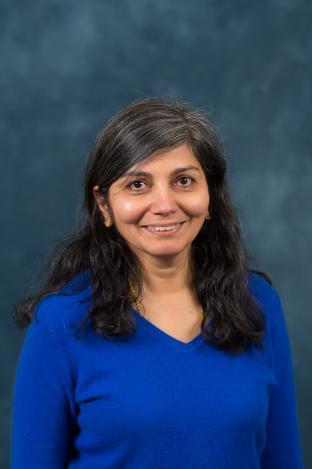Biography
Malini Raghavan obtained her BS from the Women's Christian College in Chennai, India in 1983 and her MSc from the Indian Institute of Technology, Kanpur in 1985, doing research in organic chemistry in the laboratory of Dr. S Chandrasekaran. She came to the United States for her graduate studies, obtaining a PhD in Chemistry from Princeton University in 1991, following her thesis work in the laboratory of Dr. Clarence Schutt. She then did her postdoctoral training in Immunology at Caltech, in the laboratory of Dr. Pamela Bjorkman. She then joined the faculty of the University of Michigan, Department of Microbiology and Immunology in 1996, where she has since been.
Research Interests
The calcium-binding endoplasmic reticulum (ER) chaperone calreticulin (CRT) mediates the folding and assembly of a number of cell surface and secreted glycoproteins, including major histocompatibility complex (MHC) class I (MHC-I) molecules, critical mediators of CD8+ T cell immune responses. Somatic mutations of calreticulin are recurring in myeloproliferative neoplasms (MPN), and are one group of driver mutations causing essential thrombocythemia (ET), post-ET myelofibrosis (post-ET MF) and primary myelofibrosis (PMF). ET is characterized by hyperplasia of megakaryocytes, which are precursors to platelets, and overproduction of platelets. MF involves fibrosis within the bone marrow, splenomegaly and chronic inflammation. Insertions and deletions within the gene encoding CRT alter the sequence and net charge of the C-terminal domain (C-domain), eliminate low affinity calcium-binding sites and the ER retention KDEL sequence. CRTDel52 (type-I) and CRTIns5 (type-II) are frequently observed among MPN mutations of CRT. Changes to the sequence and charge of the C-domains of the CRT drive both cell transformation and immune evasion in MPN. Our laboratory is investigating mechanisms of mutant CRT-driven cell transformation. We are also studying the effects of mutant CRT upon expression of different MHC-I allotypes and upon CD8+ T cell immunity in MPN.
Diversity Ambassador
Research Opportunities for Rotating Students
-
Cell transformation mechanisms in mutant calreticulin-driven myleoproliferative neoplasms
-
CD8+ T cell immunity against calreticulin-driven myleoproliferative neoplasms

